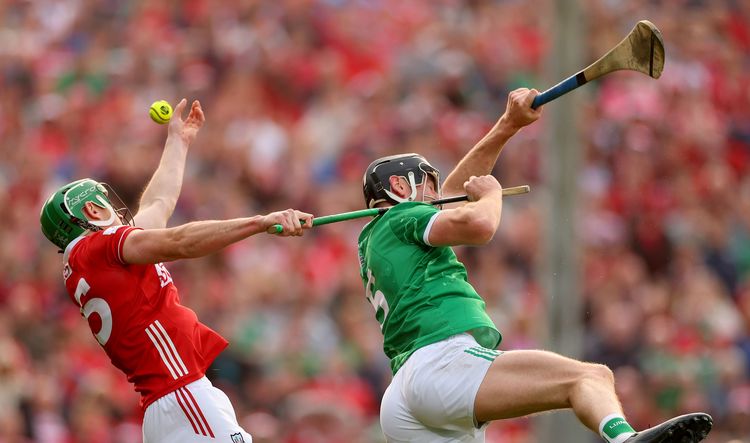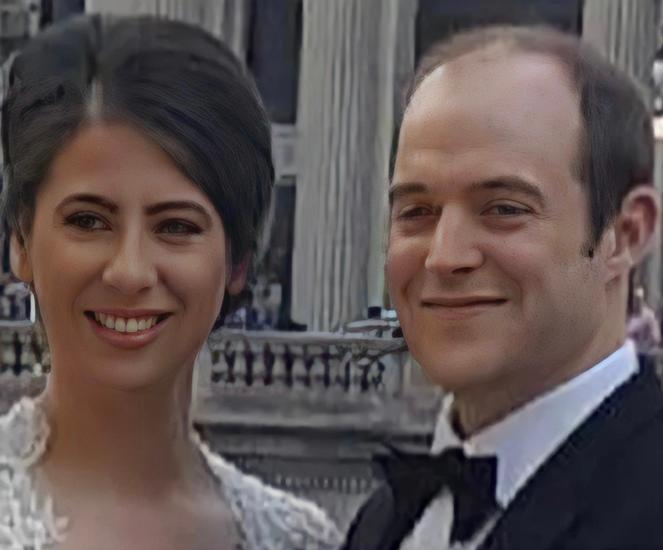John Connolly.
Page Turner / Edited by Peter McDermott
Novelist John Connolly goes back to the Clinton years and to Clinton country for his latest, “The Dirty South.” Specifically, it’s 1997, and Charlie Parker, the detective at the heart of most of his books, finds himself in the town of Cargill in Burdon County. Before too long, he wishes he’d kept on driving. Parker meets Chief Evander Griffin and the other three full-time officers of the town’s downsized police department and then, from the inside of a jail cell, County Sheriff Jurel Cade, who’s from a family that had once been the dominant force in Burdon and still holds some sway.
Connolly described the novel as a “prequel of sorts” to his first novel, “Every Dead Thing.” That 1999 introduction to the cop turned private detective Parker won Connolly the Shamus Award for Best First Private Eye Novel. He was the first non-American recipient and other major awards would follow.
American best-selling crime novelist Michael Connelly wrote in 2003 that “Connolly has quickly and decisively established himself as a unique voice.”
The Washington Post said that “The Book of Lost Things,” his fantasy novel of 2006, “entertains and unnerves in equal measure,” which is as good a summary as any of the critics and reading public’s reaction to his books more generally.
In his book “Irish Crime Fiction,” Brian Cliff says that Connolly, who has “sold well over 10 million books in 29 languages,” with the Parker novels, “in their transnational elements and their blurring of genres,” challenges “habits of reading within both Irish fiction and mystery fiction.”
Connolly, a former journalist who has over the past decade hosted a radio show covering late 1970s and '80s music for RTE entitled “ABC to XTC," wrote that he was “fascinated by the possibility of combining the rationalist traditions of the mystery novel with the antirationalist underpinnings of supernatural fiction.” Cliff added in that context, “This play with generic conventions is essential to the strengths of Connolly’s work, not least for the ways in which it underpins the substantial ethical core of the [Parker] series and helps Connolly’s work extend the boundaries of Irish writing.”
The website CrimeReads commented in that vein about his latest: “In ‘The Dirty South,’ we find Connolly weaving together Southern Gothic with Irish Noir for another great supernatural thriller."
The author himself told us that Parker is in Arkansas “on the hunt for the killers of his wife and child, but [the narrative] finds him drawn into an investigation into the killing of young black women.”
The Florida Times-Union said, "This outing for Charlie Parker is fresh and revealing, expanding on how he became the man he is today."

John Connolly
Date of birth: May 1968
Place of birth: Dublin
Spouse: Jennifer Ridyard
Children: Cameron and Alistair
Residence: Dublin
Published works: 32 books, including fiction, short stories and non-fiction.
What is your writing routine? Are there ideal conditions?
I set a target every day – it’s usually 1,000 words of the new project, and/ or maybe a little editing of something that’s heading to print – and meet it. It’s that simple, and that hard.
What advice do you have for aspiring writers?
Finish whatever you start. Every time you abandon a project, you chip away a little of your creative confidence and it never returns. I wanted to abandon every novel I’ve published somewhere between the 20,000-40,000 word stage.
Name three books that are memorable in terms of your reading pleasure.
“Bleak House” by Charles Dickens, which I think may be the greatest novel in the English language; “Wuthering Heights” by Emily Bronte, which is the book I’ve probably re-read more often than any other; and I’ll cheat a little on the third and go for the complete Jeeves & Wooster tales of P.G. Wodehouse, because they never fail to bring a little joy into my world. I’m not sure I could entirely trust anyone who didn’t like P.G. Wodehouse.
What book are you currently reading?
I’m moving between a book called Peter Ross’s “A Tomb With A View,” which is a history of, and reflection on, graveyards – don’t tell me I don’t know how to have a good time – and a re-read of “Scoop,” by Evelyn Waugh. Waugh is a curiously underrated writer now, and the “Sword of Honour" trilogy, which I finally got to last year, resembles a British “Catch-22” at times.
Is there a book you wish you had written?
Not really, no. If I’d written any of the books I love, I doubt I’d have improved them. I don’t tend to look at the creative work of others that way. I’m just grateful that there are so many books, films, and songs that I love in the world.
Name a book that you were pleasantly surprised by.
Most recently it was “The Country Girls” by Edna O’Brien. It’s a book with a controversial history in Ireland, and I suppose I’d been expecting something heavier and more miserable, but it was funny and touching, and I immediately read the rest of the novels in the trilogy.
If you could meet one author, living or dead, who would it be?
I’ve been fortunate to meet a number of the living writers I admire, or who have influenced me, James Lee Burke and Stephen King among them. I’d like to have met Ross Macdonald, without whom I probably wouldn’t be writing as I do, and I think P.G. Wodehouse would probably have been very good company.
What book changed your life?
I suspect it was the first I read unassisted, which would have been a Secret Seven novel by the English children’s writer Enid Blyton. That sparked my love of reading, and set me on the path to becoming a writer. A kid at a literary festival once pointed out to me that the first book I read was a mystery novel, which had never struck me before.
What is your favorite spot in Ireland?
It’s probably North Kerry, and the region around Ballylongford and Listowel. I spent my childhood summers there, and retain a huge fondness for it. It’s not as spectacularly beautiful as Dingle and Kenmare further south, but it has a character all its own, and the people are wonderful. Ballybunion even erected a statue of Bill Clinton just because he once played a round of golf there.









